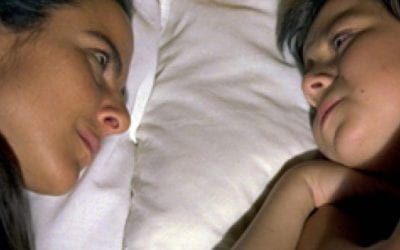Selena: The Latina in All of Us

Mexican singer Selena performing in concert; one month later she would be shot and killed by Yolanda Saldivar, the pres. of her fan club, after confronting her on charges that she was embezzling funds. (Photo by Arlene Richie/Getty Images)
We all anxiously awaited the end of 2020, a year that refused to give us a break. Netflix must’ve sensed this despair, and on December 4, “Selena: The Series” was released. The series captures the life of Selena Quintanilla, the iconic Mexican American international music phenomenon who started her singing career in her family’s garage. As a Mexican American myself, I was immediately intrigued. The end of finals season opened up hours of my time, so I decided to give this new show a try—and let me tell you, I was not disappointed.
My encounters with Selena before the show were fleeting. The name stirred some faint memories, possibly even reminded my dormant body of a distant rhythm, harvested from the countless cumpleaños and carne asadas of my childhood. She was a legend, a tragic story my mom occasionally referenced, a part of history designated to stay in the past, but stubbornly stuck in the minds of the present. Looking back, I realized that Selena was never real to me. Luckily, Netflix did what Netflix always does and revitalized her life for me. All I had to do was press play.
That December afternoon, I watched the first episode, and then the second, and then the third, and then forced myself to exit out of Netflix before I developed an obsession. More than a show about fame, “Selena: The Series” depicts a journey of hope, loss and identity. Selena Quintanilla was closer to me than I had ever imagined. She was a girl with a dream: How could I not see myself reflected in her?
The next thing I did was tell my mom about the show. In a weirdly comforting way, I felt like I knew my mom better than before. It was like looking at old pictures of my mom as a teenager. This is whom she grew up with. This is part of the culture she carries around, part of who she is and forever will be. Selena’s legacy was imprinted in her memory, and now it was imprinted in mine too.
I had always associated Selena with being a Latina star. I didn’t realize that she was born in Texas, on American soil. She was both. (Mini Spoiler Alert!) At the end of the first episode, when Selena’s dad tells her she has to learn to sing in Spanish, Selena says, “But… I’m American.” Her dad responds, “And Mexican.” What a line. This Latin American duality— it’s a privilege, it’s a responsibility, it’s a burden, it’s a blessing. My passport says I’m American. My face says I’m Latina. My rolled r’s in English say I’m both. My imposter syndrome says I’m neither. How do we reconcile this? How did Selena? At the end of Part 1, I was left with some kind of closure: maybe you don’t have to. Maybe the point isn’t figuring out how to balance your identities. Maybe, just maybe, the point is learning to live with the constant imbalance. Some days, you’re Latinx and proud. Other days, you just want to pass by unnoticed. Selena was an icon. But she was also a real person, like any of us.
For days, I listened exclusively to Selena, dancing around my bedroom to “Como La Flor” shamelessly, feeling empowered, feeling Latina, the words yo sé que tienes un nuevo amor filling the room. There’s something to be said about hearing the voice of a beautiful young Latina and realizing it’s your own voice. Whether you know Selena or not, watch the series. I promise you’ll know her afterwards, and at the bare minimum, you’ll have an excuse to dance around to some groovy tunes.
Fall 1999
Ada Cruz is a Harvard sophomore in Mather House originally from Naples, Florida. She’s concentrating in Government with a secondary in Computer Science. She is passionate about immigration politics, but outside of class, she is an avid boxer and runner.
Related Articles
A ReView of La Misma Luna
With teary eyes, I finish watching Patricia Riggin’s 2007 film La Misma Luna one more time, a testimony of the unconditional love between a mother and son. Carlitos Reyes, a 9-year-old boy, who lives in Mexico with his grandmother.
Student ReViews: Monumental Callao is a Step Forward for Peru’s Most Crime-Ridden Area
The taxi ride to Monumental Callao is a gallery visit in itself. Murals, graffiti, 19th-century pastel-colored houses and street carts called ambulantes sell fruits, various fried concoctions and even ceviche in a plastic bag. It’s a colorful reminder that often, underprivileged areas are the most culturally rich.
A Review of Linda Ronstadt’s “Canciones de Mi Padre”
With the help of Spotify’s Discover Weekly, a friend’s recommendation, or some other source I can’t recall, I was introduced to the music of the Stone Poneys early in high school. Though the songs reappeared on playlist after playlist for years, I only learned the name of the woman on the cover — Linda Ronstadt…




